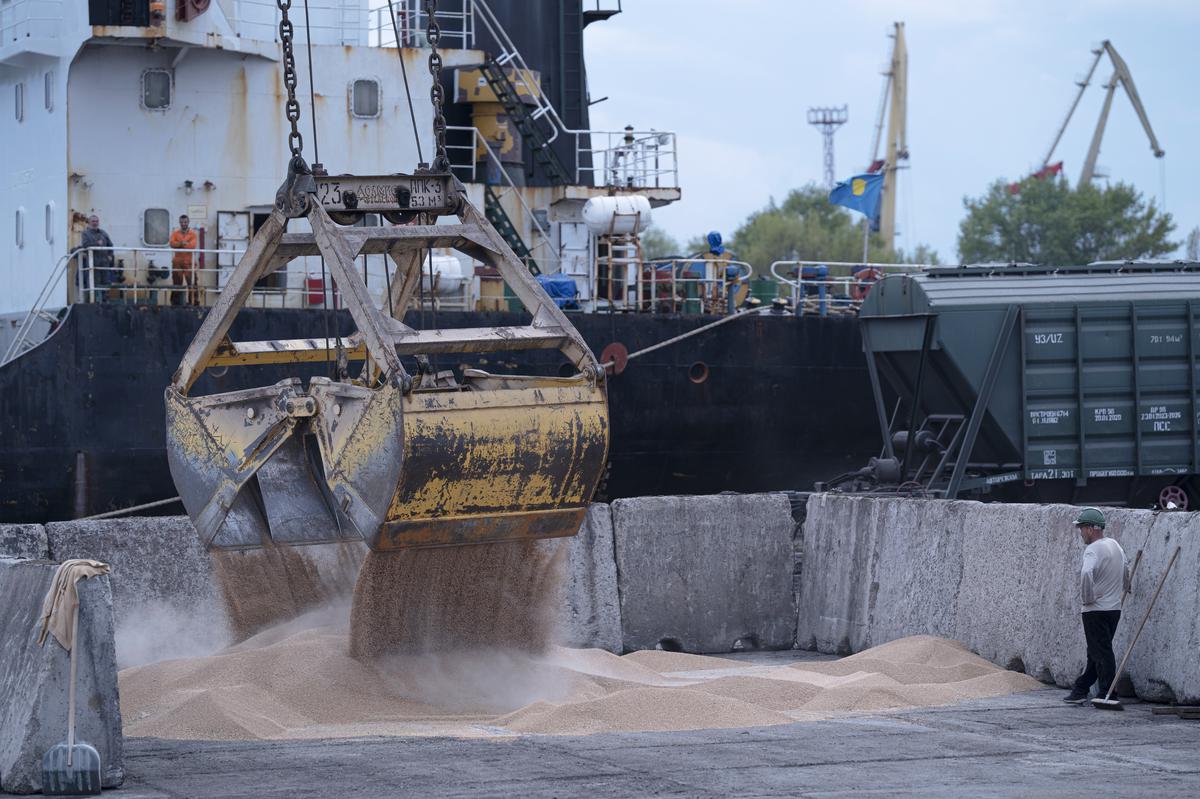
The allowance for Ukraine to ship grain during Russia’s war holds significant global importance due to the existing challenges many countries face regarding high local food prices and the subsequent increase in hunger levels. The agreements brokered by the United Nations and Turkey between Ukraine and Russia, enabling the transportation of food and fertilizer from the warring nations to regions where millions are experiencing food insecurity, have alleviated concerns surrounding global food security. However, these agreements are now facing growing risks.
The rhetoric from Moscow has escalated, with statements suggesting that the extension of the deal, set to expire on Monday, is uncertain unless certain demands are met. These demands include ensuring that Russia’s own agricultural shipments encounter no obstacles.
The implications of allowing Ukraine to continue shipping grain amidst the ongoing conflict between Ukraine and Russia extend beyond the immediate region. Many countries around the world are grappling with soaring local food prices, exacerbating the issue of hunger. Access to affordable and sufficient food is essential for the well-being of individuals and communities, and disruptions in the global food supply chain can have far-reaching consequences.
The agreements facilitated by the United Nations and Turkey play a crucial role in mitigating the challenges of food security on a global scale. By enabling the transport of food and fertilizer from Ukraine, where agricultural production remains relatively stable, to regions experiencing food shortages, these agreements provide a lifeline to millions of people facing hunger.
However, the risks associated with the expiration of the deal and the potential disruptions to agricultural shipments loom large. If Russia decides not to extend the agreement and imposes obstacles on its own agricultural exports, it could exacerbate the global food crisis. The ramifications would be felt in various countries, where high food prices are already a pressing issue and contribute to worsening hunger levels.
To address these concerns and uphold global food security, it is crucial for all parties involved to find a resolution that allows for the continued transportation of food and fertilizer from Ukraine. The United Nations, along with other international actors, must engage in diplomatic efforts to ensure that the necessary agreements are upheld and that any potential hurdles faced by Russia’s agricultural shipments are addressed through dialogue and negotiation.
Safeguarding the flow of grain shipments from Ukraine during this challenging period is not only vital for the affected regions but also for the overall stability of the global food system. Cooperation and collaboration among nations are essential to address the interconnected challenges of food security, hunger, and escalating food prices.
